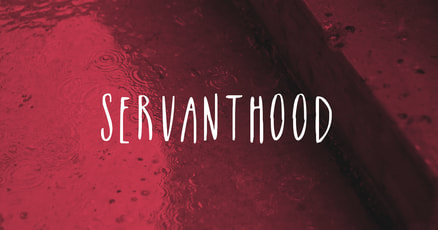
Mark 10:35-45
Sunday, October 21, 2018
© the Rev. Dr. James Campbell
Mark 10:35-45
James and John, the sons of Zebedee, came forward to him and said to him, “Teacher, we want you to do for us whatever we ask of you.” And he said to them, “What is it you want me to do for you?” And they said to him, “Grant us to sit, one at your right hand and one at your left, in your glory.” But Jesus said to them, “You do not know what you are asking. Are you able to drink the cup that I drink, or be baptized with the baptism that I am baptized with?” They replied, “We are able.” Then Jesus said to them, “The cup that I drink you will drink; and with the baptism with which I am baptized, you will be baptized; but to sit at my right hand or at my left is not mine to grant, but it is for those for whom it has been prepared.”
When the ten heard this, they began to be angry with James and John. So Jesus called them and said to them, “You know that among the Gentiles those whom they recognize as their rulers lord it over them, and their great ones are tyrants over them. But it is not so among you; but whoever wishes to become great among you must be your servant, and whoever wishes to be first among you must be slave of all. For the Son of Man came not to be served but to serve, and to give his life a ransom for many.”
+++
When I was a small child, I became convinced that I was adopted. That’s really not so unusual. But what was unusual was my suspicion that my so-called parents wore disguises all day long, and that they were, in fact, Chinese spies. I have no idea where this notion came from. But I do remember deciding that I had to find out if it was true. So, one night, I crept into their bedroom while they were sound asleep, thinking that, of course, they took their masks off at night. As my mother tells it, she woke up from a dead sleep to have my five-year-old face about an inch away from hers as I tried desperately to see through the darkness who she really was.
As I said, I don’t know where my crazy idea came from, but I suspect its genesis had to do with my growing realization that I was different. -- I think a lot of us felt or feel that way. The idea that you are somehow different from those who raised you is far more common than most folks acknowledge. Feeling different is an important early part of self-differentiation; of coming into your sense of being an individual. And you begin to understand that your dreams and desires and ambitions are not necessarily the same as your parents. And very often, the dreams of the young are about having more than their parents did. In fact, that is a building block of the American dream – that each generation will do better than the one before. And that drive for success seems to be built right into our DNA.
Of course, this desire for more power and more influence has resulted in some remarkable human achievements. We children of God have done some incredible things while striving toward excellence. But this desire for more power and more influence has also resulted in some remarkable human problems. Those problems even pop up in the church, because we are forever tempted to measure success by the markers of worldly power and influence. The late, great Catholic theologian Henri Nouwen once said that “the long, painful history of the church is the history of people ever and again tempted to choose power over love, control over the cross, being a leader over being led.”[1]
We see this temptation at work in the Gospel lesson today. Two brothers, James and John, were early disciples of Jesus. They followed him because they believed he was the Promised Messiah. And what that meant for them was that Jesus would be a military leader who would drive the Romans out and reestablish the powerful and wealthy Kingdom of David. And since they had been with Jesus from the beginning, it only made sense that they would share that power and wealth. They were different and would have more than their parents did.
One day, when their anticipation had gotten the best of them, James and John got Jesus into a corner by themselves and whispered excitedly: “Rabbi, we have an idea! We want you to do for us whatever we ask.” - “What is it you want?” Jesus replied. And the brothers, exchanging knowing glances, spoke the lines they had been rehearsing for days “Lord, when you come into your glory, we want to share your power, one on your right hand and one on your left.”
Well, you have to admire their chutzpah. They saw what they wanted and they went after it. When the other ten disciples heard about this, they were angry because the Zebedee brothers had beaten them to the punch. These ten others were also poor, uneducated men who saw this “Jesus Adventure” as a shot for a better life.
So how did they get it so wrong? Maybe for the same reason we get it so wrong. The things that Jesus said and taught are hard to understand and accept – enigmatic things like: “the first will be last and the last will be first” and “if you want greatness, you have to be a servant.”
Many years ago, I worked in a large, affluent suburban church just outside of New York City. Many of the people of that congregation had prestigious jobs. They were a successful and powerful bunch. And the culture of that church was to wholeheartedly support this drive for success – as if success itself were a Christian virtue. I will never forget the Sunday that the senior minister preached on this story, but as told in the Gospel of Matthew. In Matthew’s version, it’s the mother of James and John who is trying to secure cabinet positions for her sons. And in his sermon the senior minister vigorously defended the mother and lauded the fact that she was just looking out for her own. And, he said, we should all do the same. And I sat on that chancel dumbstruck.
“Jesus, we want to sit on your right and left hand in your glory.” And I imagine that Jesus looked at them and understood them and loved them. And then he asked them: “Are you able to drink the same cup I will and be baptized as I am about to be?” And imagining that this was their invitation to power and prestige, they answered enthusiastically: “Yes Lord, we are able!” Martin Copenhaver, President of Andover Newton Seminary, commenting on their enthusiasm writes: “It goes without saying that when James and John made their request they did not envision that the ones who would end up on Jesus’ right and left would be hanging on crosses.”
Then Jesus turned to the whole group and said: “You know that among the Gentiles those whom they recognize as their rulers lord it over them, and their great ones are tyrants over them. But it is not so among you; but whoever wishes to become great among you must be your servant, and whoever wishes to be first among you must be slave of all. For the Son of Man came not to be served, but to serve, and to give his life as a ransom for many.”
The ways of this world; the power structures; the emphasis on youth and beauty and riches and control - are all very alluring. But we find, again and again, that those vain satisfactions do not last. The thrill of victory is brief. And before long we are off again searching for something else to make us happy; something new to conquer; something to fill the emptiness inside. It’s an endless and exhausting cycle.
That rich, suburban church I told you about left a very deep impression on me – and not a good one. It was from that parish that I left the ministry for ten years – angry and confused and embittered. I would have written off those four years of ministry at that church as a complete waste of time, except for this: Every Thursday, I would drive a group of Jr. High students from the manicured lawns of our perfect village to the dirty and barren streets of Paterson, NJ where there was an old run-down building called St. Stephen’s Mission. They had an after-school program and every Thursday we would tutor those desperately poor, sometimes abused, often misunderstood kids with their homework. In the beginning, I did it because it was my job. In the beginning, the disparity between the two towns only made me more cynical. But after awhile, after I got over myself, as the children in Paterson started to know and love me, as I began to know and love them, something inside of me began to change. And I found a deep meaning and purpose and salvation in humble service. At a time when my faith seemed to be crumbling, I saw God in their faces. And that experience is one of the main reasons I stand in this pulpit today. And all of these years later, I still cannot imagine anything that I have ever done that was more important and life giving than that.
When Christ calls us to serve, he isn’t asking us to give up everything. He’s asking to give us everything. He’s calling us to real and eternal life. I know that I said that it’s in our DNA to seek power and influence; but I am also convinced that it is in our DNA to love and serve others. That’s the image of God in us. And humble service gives us the kind of treasure that all the money and influence in the world can never buy.
Thanks be to God. Amen.
[1]Nouwen, Henri. In the Name of Jesus: Reflections on Christian Leadership,1990, p.60


 RSS Feed
RSS Feed